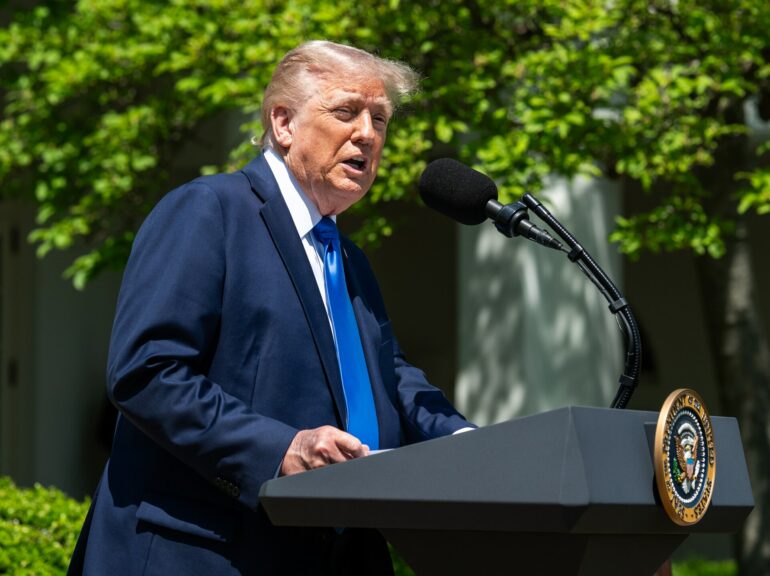Trump has now reportedly announced that China is ‘fully open’ to American goods.
BREAKING: Trump says China agrees to ‘fully’ open country’s markets to US businesses
— Fox News (@FoxNews) May 12, 2025
The news comes in the wake of United States and China announcing a landmark agreement on Monday, aimed at dramatically reducing tariffs amid ongoing trade negotiations.
This agreement follows intense discussions that took place over the weekend in Switzerland, signaling a potential thaw in relations between the two economic powerhouses.
Under the new deal, President Trump’s 125% tariff on Chinese imports will be significantly reduced to just 10%. Similarly, China will lower its retaliatory tariffs from 125% to 10% as well.
Notably, a 20% tariff on fentanyl imports will remain in place, reflecting ongoing concerns about the opioid crisis in the United States.
These tariff reductions are set to go into effect by May 14, providing immediate relief to various sectors affected by the previous tariffs.
A joint statement released by both nations emphasized the establishment of a framework for continued discussions regarding economic and trade relations moving forward.
U.S. Treasury Secretary Scott Bessent, U.S. Trade Representative Jamieson Greer, and China’s Vice Premier He Lifeng will lead these discussions, which may alternate between the two countries or take place in a third nation upon mutual agreement.
This framework represents a significant step towards more structured and diplomatic engagement.
Bessent highlighted that one of the key takeaways from the negotiations is the U.S. commitment to addressing supply chain vulnerabilities that were exposed during the COVID-19 pandemic.
He specifically mentioned critical sectors such as medicines, semiconductors, and steel, indicating a strategic shift towards enhancing U.S. independence and reliability in these areas. Notably, both delegations agreed that neither side desires a complete economic decoupling, reflecting a willingness to find common ground.
In addition to tariff reductions, China has agreed to suspend various non-tariff actions that had been implemented since April 2, including restrictions on the export of rare earth materials and penalties targeting specific American companies.
Bessent underscored the importance of increasing access for American goods in the Chinese market, which has been a longstanding concern for U.S. trade officials.
The agreement also encompasses commitments from China to take more robust action against the flow of fentanyl into the United States. Discussions involving Chinese law enforcement officials were reportedly productive, focusing on strategies to combat this significant issue.
Bessent noted that the presence of the Chinese Deputy Minister for Public Safety at the talks marked an unusual but crucial step in addressing a matter that extends beyond typical trade discussions.
Following the announcement of this agreement, global stock markets experienced a surge, reflecting investor optimism over the easing of trade tensions and the potential for improved economic collaboration between the two nations.
This development is significant not only for U.S.-China relations but also for global economic stability, as both countries play pivotal roles in the world economy.
Overall, this agreement marks a critical moment in U.S.-China trade relations, highlighting the complexities and challenges that remain while also offering a path forward that could benefit both economies.
The success of this agreement will depend on the commitment of both sides to follow through on their promises and continue engaging in constructive dialogue.
[READ MORE: Former Trump Staffer Suddenly Collapses During Fox News Appearance]



